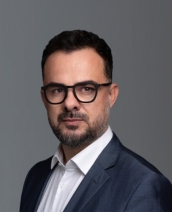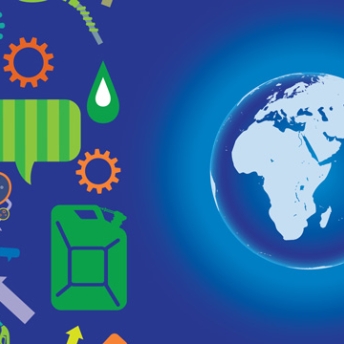Lukas Vylupek
Lukas advises Energy & Utilities clients on strategic digital transformation topics, network operations transformation and overall organizational effectiveness.

Areas of Focus
Education
Past Experience

Lukas is a Partner at Arthur D. Little, based in Prague, and a senior member of our Energy & Utilities Practice; he is also the Global Leader of the Digitalization & Innovation Competence Center for Utilities.
Since joining the consulting industry in 2001, Lukas has focused purely on Electricity and Gas Utilities in a wide spectrum of topics ranging from strategic market-entry projects and investment strategies into renewable energy all the way to commodity sales product portfolios and multiple asset management topics for network operators.
Lukas has very broad international exposure, having worked across a plethora of European and Middle Eastern markets. He’s passionate about bringing the best talents to Arthur D. Little through his recruiting management role.
Outside work, Lukas likes to hike, ski and spend time with his family.

The future of biomethane

Real estate clean energy strategy

Transforming a utility company’s front line

Digital future of electrical networks

Reforming the energy subsidy systems in the Middle East

Third Party Access in Gas Transportation

Lukas is a Partner at Arthur D. Little, based in Prague, and a senior member of our Energy & Utilities Practice; he is also the Global Leader of the Digitalization & Innovation Competence Center for Utilities.
Since joining the consulting industry in 2001, Lukas has focused purely on Electricity and Gas Utilities in a wide spectrum of topics ranging from strategic market-entry projects and investment strategies into renewable energy all the way to commodity sales product portfolios and multiple asset management topics for network operators.
Lukas has very broad international exposure, having worked across a plethora of European and Middle Eastern markets. He’s passionate about bringing the best talents to Arthur D. Little through his recruiting management role.
Outside work, Lukas likes to hike, ski and spend time with his family.

The future of biomethane

Real estate clean energy strategy

Transforming a utility company’s front line

Digital future of electrical networks

Reforming the energy subsidy systems in the Middle East

Third Party Access in Gas Transportation
More About Lukas
- Thomas Bata University Zlin (Czech Republic)PhD., Field Of Study Economics and Management
- Brno University of Technology (Czech Republic)Ing., Economics and Management
- The Boston Consulting GroupPrincipal
